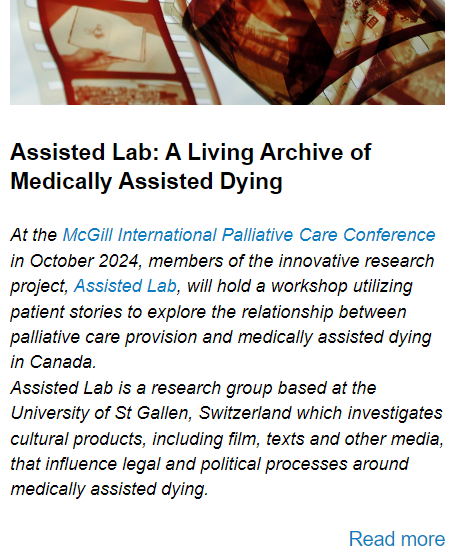Archives, Memory, and the Cultural Politics of HIV/AIDS
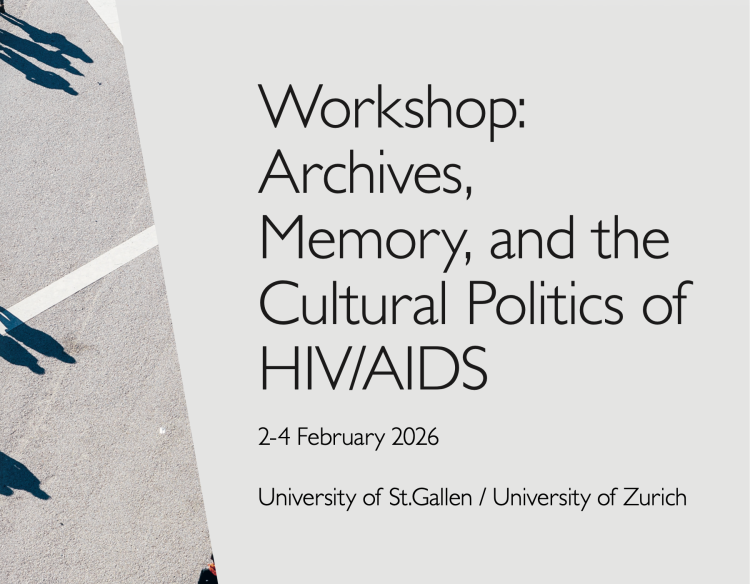
Alexander Meienberger (University of St. Gallen) and Todd Sekuler (University of Zurich) are organising the interdisciplinary workshop “Archives, Memory, and the Cultural Politics of HIV/AIDS”, which will take place from 2 to 4 February 2026 at the University of St. Gallen and the University of Zurich.
Bénédicte Vauthier met with Assisted Lab
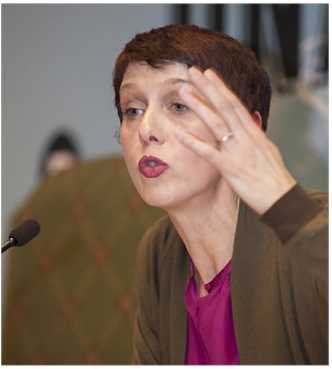
Bénédicte Vauthier spoke to Assisted Lab about her interests and education in end-of-life care, and how these intersect with her long-standing work on narration and representation in Spanish literary and cultural artefacts.
Laughing at Death - Humor in the Face of Mortality
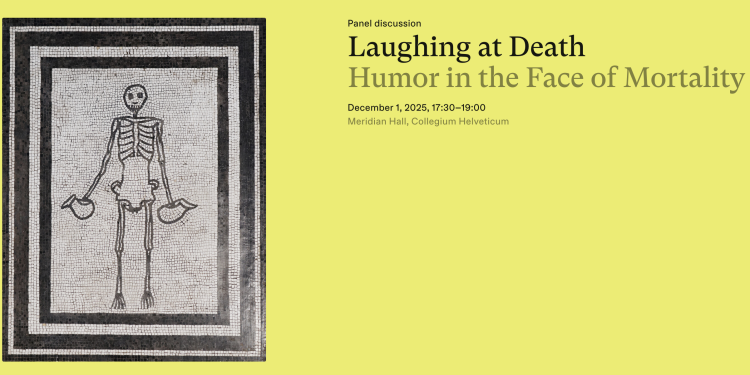
Humor has long been one of the ways humans approach the reality of death. Across cultures and historical periods, people have used jokes to navigate fear and grief. In this event, Anna Elsner takes part in a conversation with two classicists and the director of the Friedhof Forum Zurich to examine how laughter and irony shape our relationship to mortality.
Literary and Cinematic Perspectives on ‘Completed Life’ and ‘Old-Age Assisted Dying’
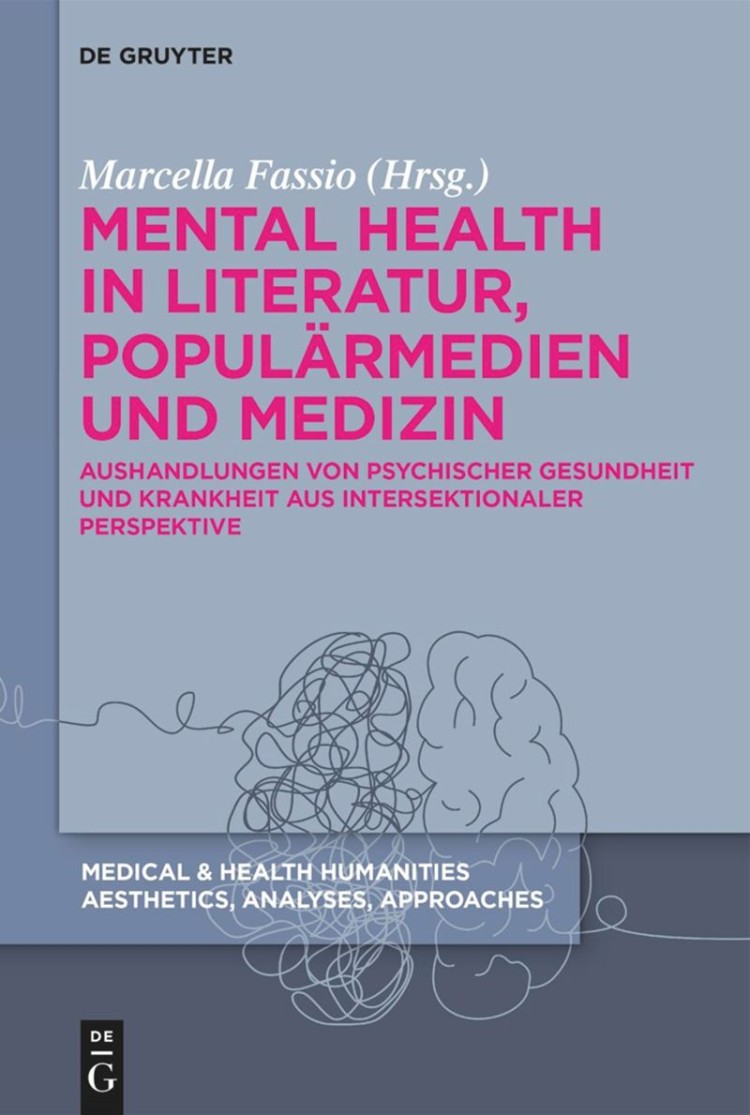
Against the backdrop of current debates about the permissibility of assisted dying for elderly people who are not (seriously) ill but who, for various reasons, consider their lives to be complete, Marc Keller and Wouter Schrover investigate literary and cinematic perspectives on the topic in the Netherlands, Belgium, Germany, and Switzerland.
New book on the idea of medical progress
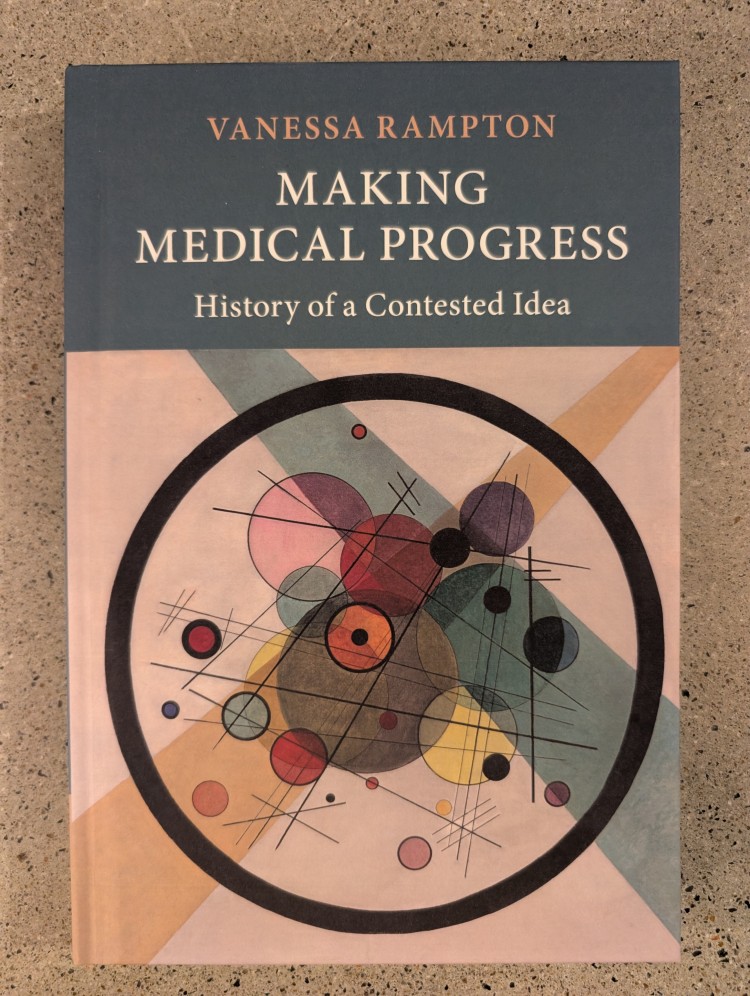
Is assisted dying the logical final step of a medicine that places ever more emphasis on patient freedom? This new book argues that many different definitions of progress feed into our shared sense of what makes better medicine, but that we don’t fully realise their implications.
Krankheitsnarrative in Oksana Vasjakinas Trilogie Rana, Step’ und Roza
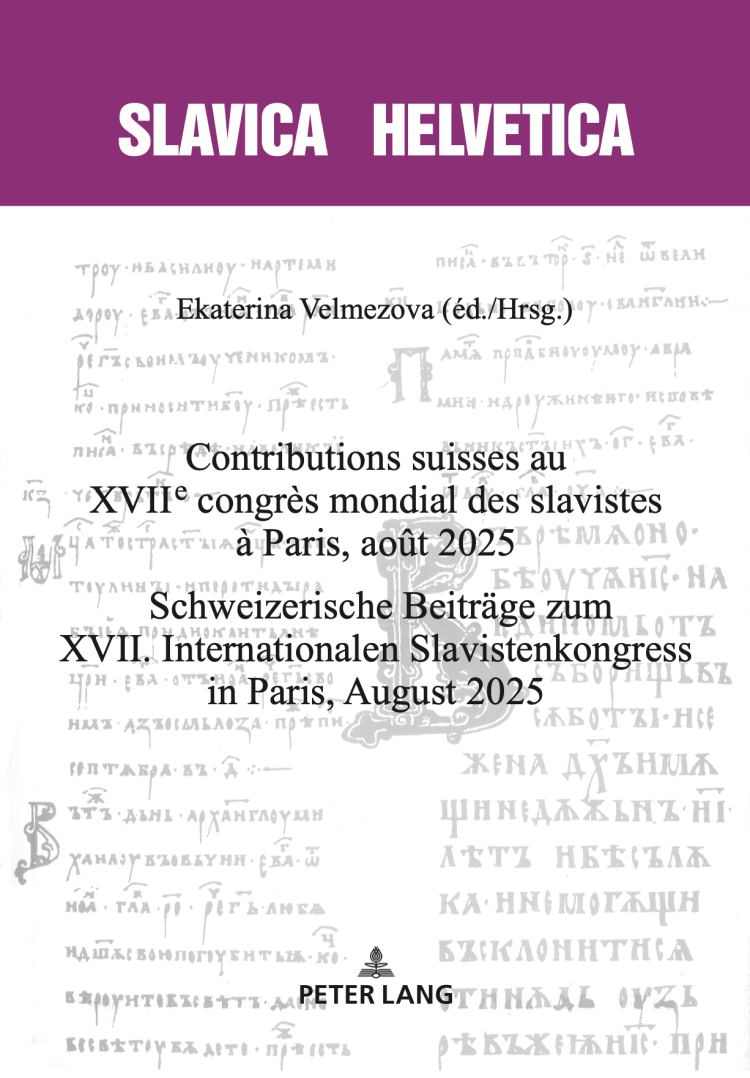
In the edited volume Contributions suisses au XVIIe congrès mondial des slavistes à Paris, août 2025, Alexander Meienberger’s chapter examines how illness is represented and negotiated in contemporary Russian literature.
Lecture on Assisted Dying Narratives in the Digital Series “What Death Reveals About Life”

As part of the interdisciplinary online lecture series “What Death Reveals About Life”, Marc Keller presents selected German-, French-, and English-language cultural productions on assisted dying, exploring how they portray personal attitudes and ethical issues surrounding the end of life and how they shape contemporary political and social discourse.
Sarco Webinar Featuring Assisted Lab

What ethical issues arise when assisted dying occurs without medical supervision? What challenges emerge when technology enables the creation of tools for assisted dying?
Assisted Lab participated in an event with colleagues from Zurich, Lausanne, Toronto and Stanford entitled ‘The Sarco Question: Can Technology Replace Doctors in Assisted Dying?’
Research Handbook on End of Life Care and Society

Jordan McCullough and Anna Elsner are contributors to the Research Handbook on End of Life Care and Society (Edward Elgar, open access), with a chapter entitled “Humanities Collaborations in End of Life Care.” The book will be launched at the University of Leiden (16 October) and the University of Glasgow (30 October).
SNSF Funds Workshop "Archives, Memory, and the Cultural Politics of HIV/AIDS in Europe"
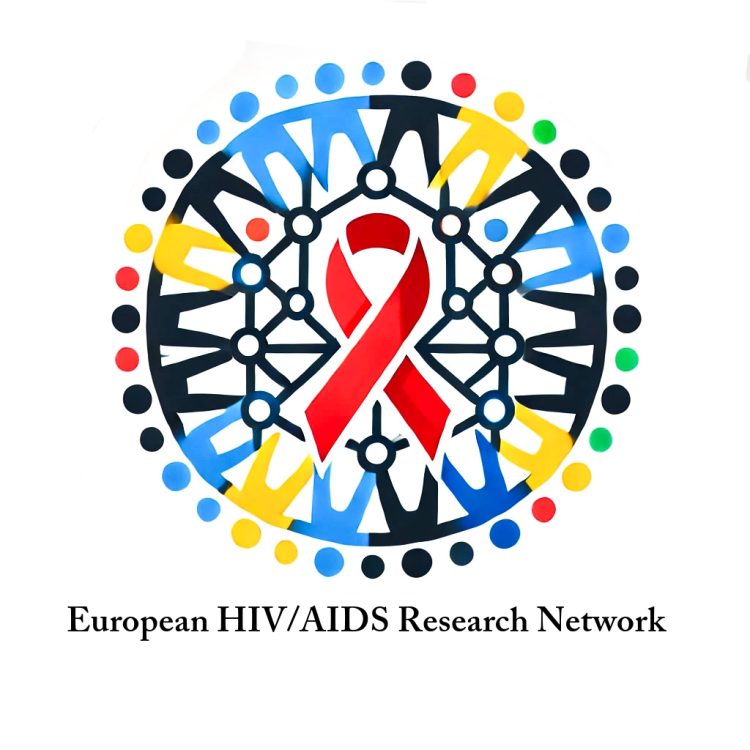
The Swiss National Science Foundation (SNSF) has approved funding for the international workshop “Archives, Memory, and the Cultural Politics of HIV/AIDS in Europe,” which will take place at the Universities of St. Gallen and Zurich from 2 to 4 February 2026.
HIV/AIDS in Russia: Fighting a Stigma No One Talks About
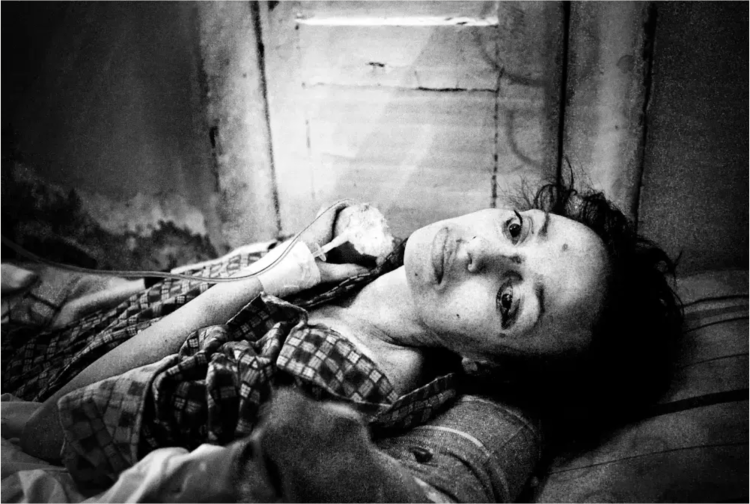
Alexander Meienberger examines the ongoing cultural and societal stigmas surrounding HIV/AIDS in Russia, highlighting the efforts of cultural initiatives to challenge these barriers and bring visibility to marginalized voices.
Seed Meeting Institut Français d'Ecosse, Edinburgh
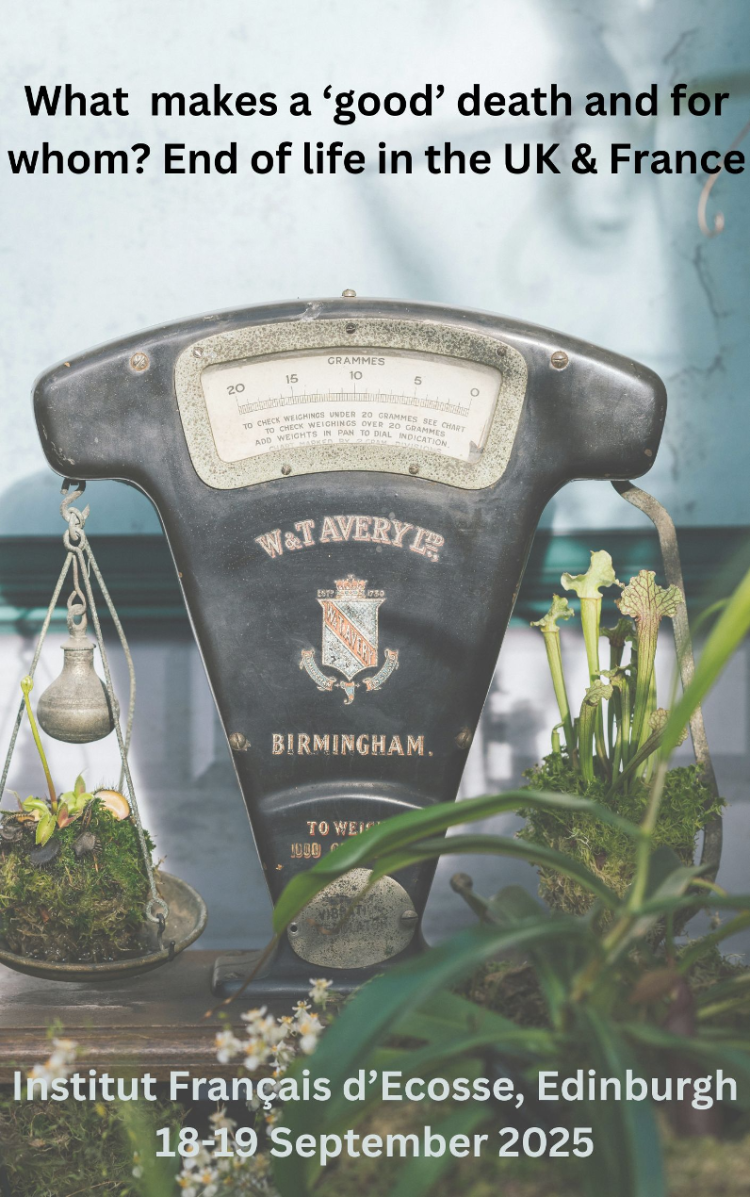
The meeting, organised by Ben Kasstan Dabush (University of Edinburgh) and Séverine Mathieu (EPHE), asked what constitutes a “good death” in France and the UK, exploring cultural and ethical differences and similarities. Jordan McCullough & Anna Elsner contributed by introducing Assisted Lab’s transnational work on the role of the arts in shaping public and legal discussions of assisted dying.
Assisted Dying Narratives Workshop at Congress of the Swiss Society of General Internal Medicine (SGAIM)
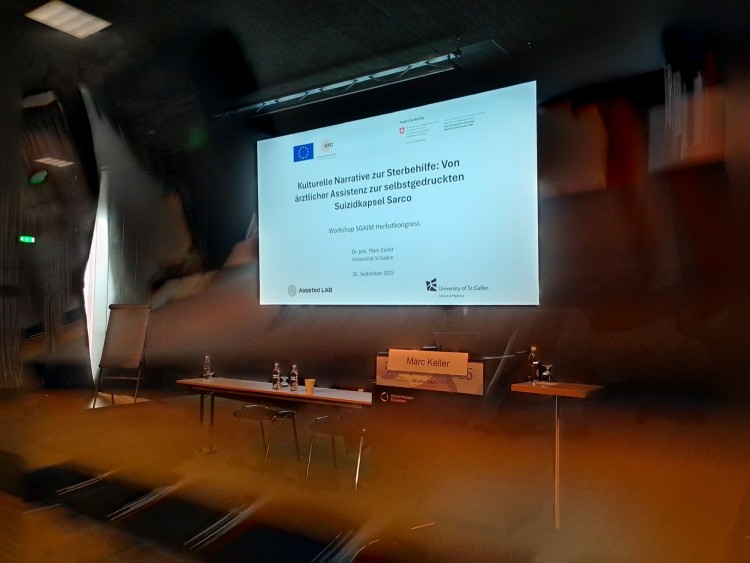
In this workshop, Marc Keller and the participants discussed three cultural narratives of assisted dying in the Swiss context. The discussion focused on current issues in the practice, particularly the wish to die among healthy individuals and—against the backdrop of the first use of the Sarco capsule—the question of whether assisted dying without medical involvement is conceivable and desirable.
Newspaper article on autonomy-based assisted dying and the often limited choice for disabled people
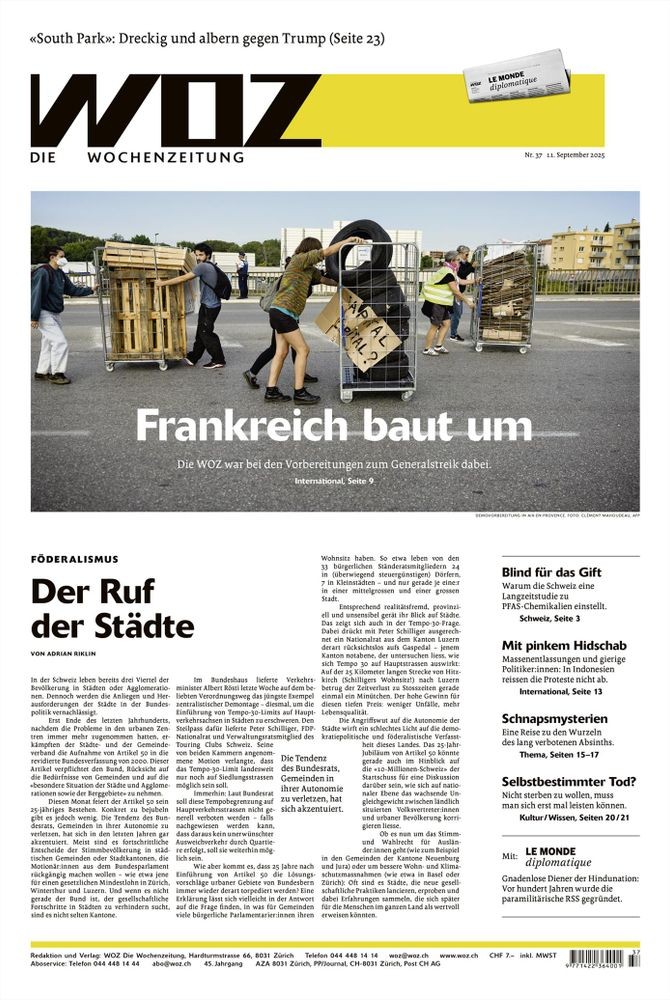
In this newspaper article, Marc Keller critically examines the growing demand to permit assisted dying for people who are not seriously ill, a demand rooted in notions of autonomy and freedom. Two documentary films, however, reveal the flip side: for people with disabilities, these foundations are often absent, making assisted dying less a matter of choice than a consequence of inadequate support.
Assisted Lab’s Work Featured in 'Re:visit. Humanities & Medicine in Dialogue'
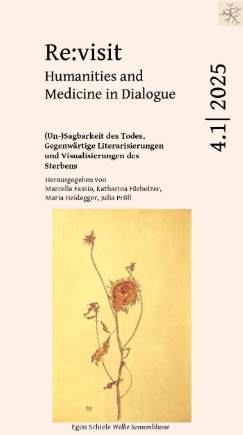
In a report for the open-access journal ‘Re:visit. Humanities & Medicine in Dialogue,’ Anna Elsner and Marc Keller provide insights into the origins and development of Assisted Lab, present key findings and activities, and outline future research questions and challenges.
Medical Spaces in Cultural Studies, Architecture, Literature. Transdisciplinary Perspectives
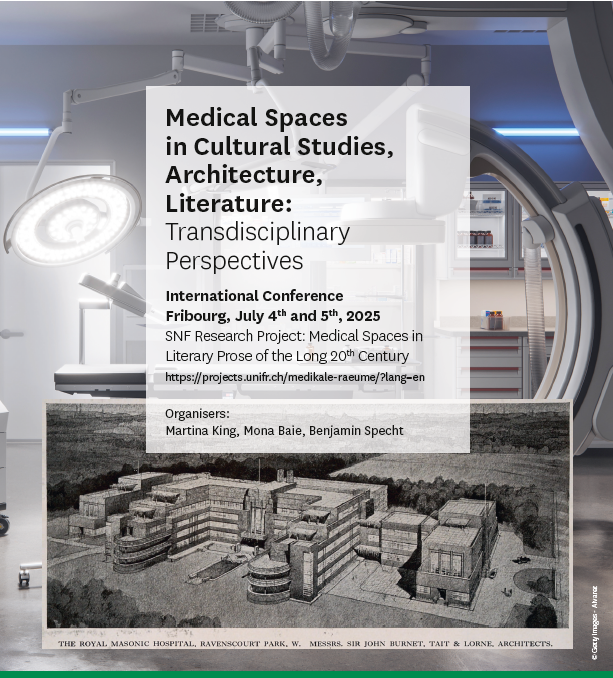
At a transdisciplinary conference on medical spaces, hosted by the Chair of Medical Humanities at the University of Fribourg on July 5–6, 2025, Marc Keller examined literary and cinematic portrayals of space in the context of so-called ‘suicide tourism’ to Switzerland.
Grant Writing and ERC Starting Grant Workshops with Global SNSF Fellows Network and Collegium Helveticum
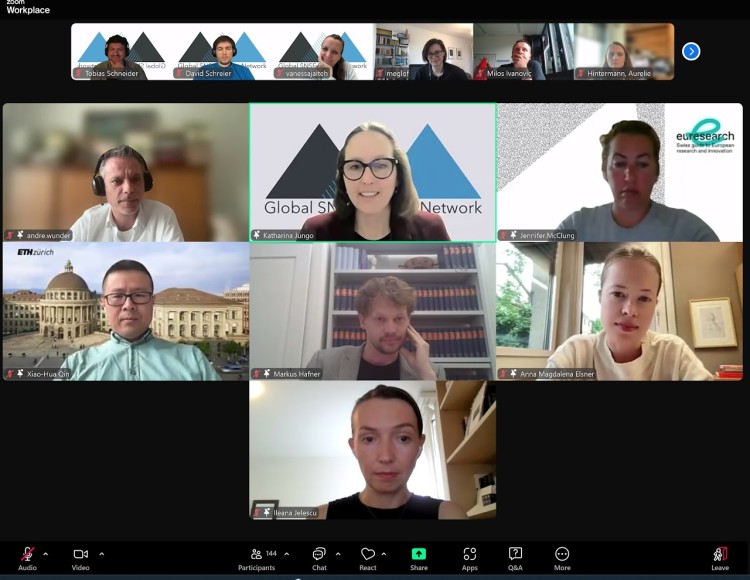
In May and June 2025, Anna Elsner contributed to two grant workshops by sharing her experience as a successful ERC grantee, offering concrete strategies, insights into the application process, and practical advice to support fellows in crafting competitive proposals.
Events at the Southampton Centre for Medical and Health Humanities
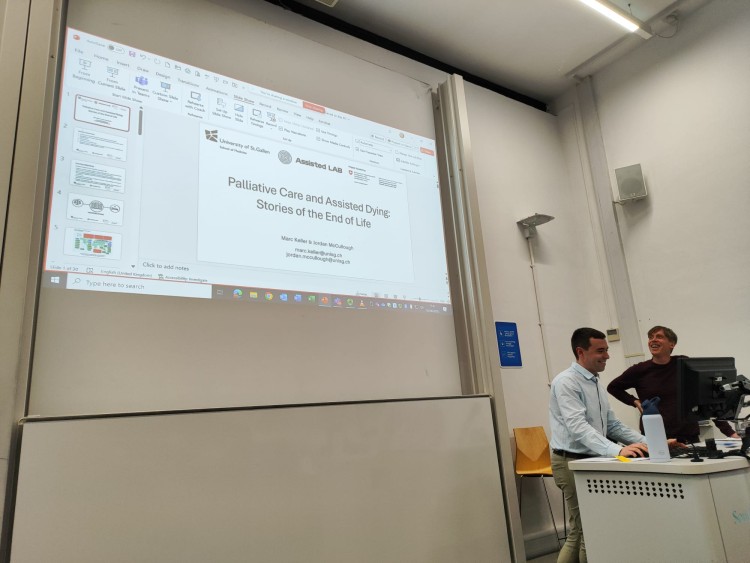
The Southampton Centre for Medical and Health Humanities invited Assisted Lab to deliver a public-facing workshop and an academic seminar. The workshop, entitled ‘Palliative Care and Assisted Dying: Stories of the End of Life’, attracted an audience from a range of professional and academic backgrounds, while the seminar provided opportunities for valuable exchange with colleagues from the Centre.
Marc Trabsky spoke to Assisted Lab about the neoliberal rationality of assisted dying in Australia
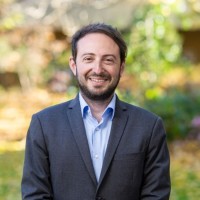
Marc Trabsky, Associate Professor of Law and Deputy Director of the Australian Center for Justice Innovation at Monash University, presented a chapter on the neoliberal rationality of Voluntary Assisted Dying (published as part of an edited volume entitled ‘Voluntary Assisted Dying Law? Health? Justice?’, ed. by Daniel J. Fleming and David J. Carter) at an Assisted Lab research meeting on 28 May.
Malcolm Bowie Prize 2024
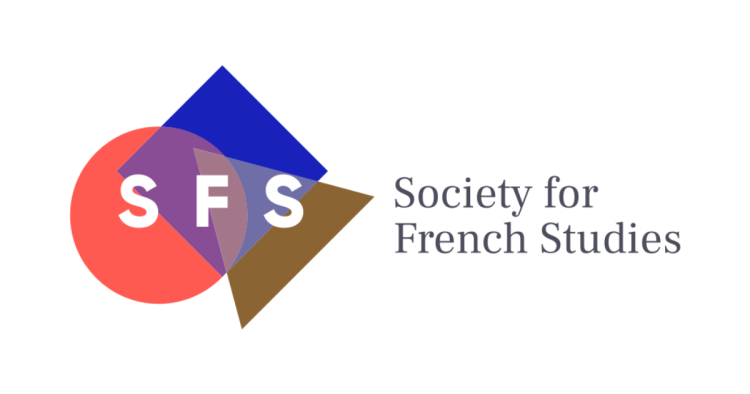
Jordan McCullough was runner-up in the 2024 round of the Malcolm Bowie Prize. The Prize is awarded annually by the Society for French Studies for the best article published in the preceding year by an early-career researcher in the broader discipline of French Studies.
Presentation on Cultural Products and MAID Expansion in Québec & Canada
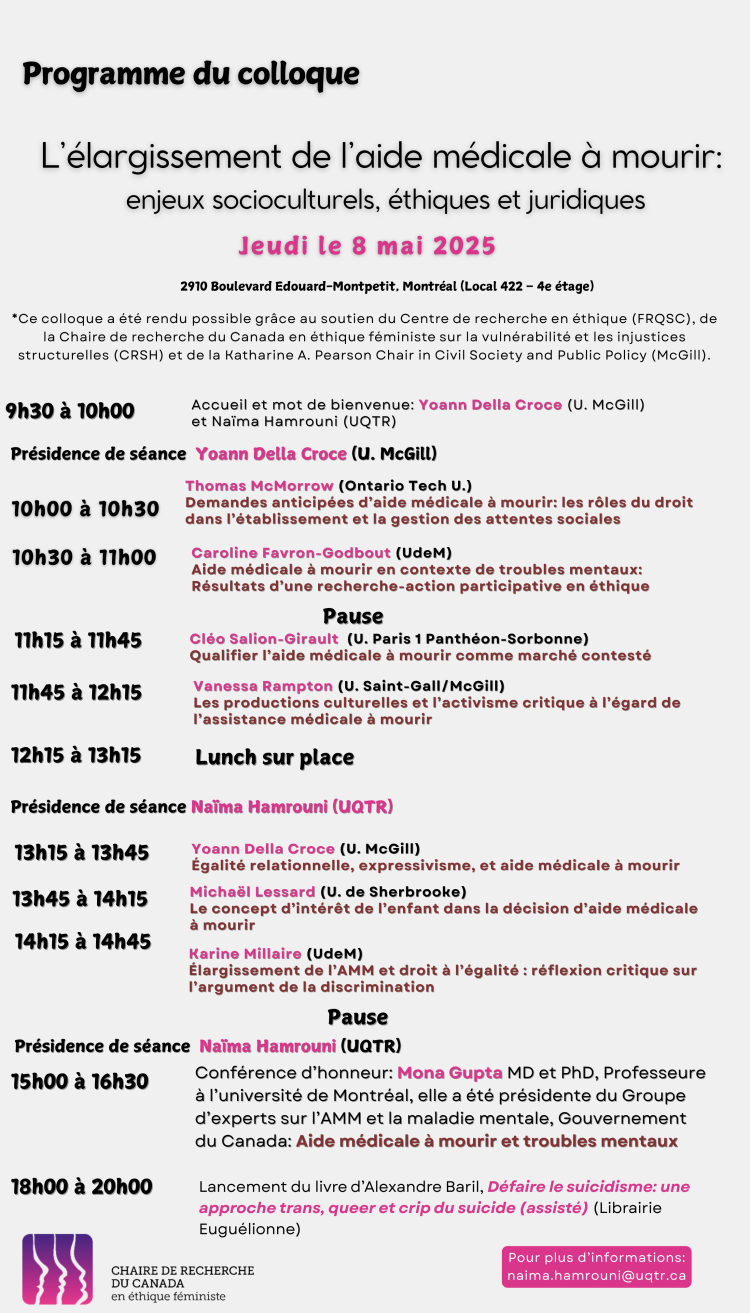
Vanessa Rampton gave a presentation entitled ‘Oeuvres culturelles et l’élargissement de l’aide médicale à mourir’ in the context of a conference organized by Naima Hamrouni and Yoann Della Croce. The conference took place at Université de Montréal & McGill on 8 & 9 May.
Paper at Granada Conference on End-of-Life
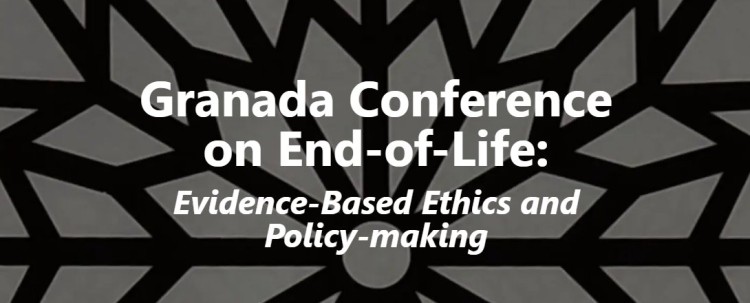
Jordan McCullough gave a paper on Assisted Lab’s ‘Living Archive of Assisted Dying’, focusing on the story of Ramón Sampedro, its creative representation in the feature film ‘Mar adentro’ and its role in debates regarding the introduction of euthanasia legislation in Spain. The conference took place at the University of Granada, Spain, and was hosted by the INEDyTO research group.
Endings and Meanings: Existential Suffering in the 21st Century – Conference at ETH Zurich

Should assisted dying be accessible to individuals experiencing existential suffering that is not rooted in a severe medical condition? In order to critically examine this question, the symposium convened interdisciplinary experts from Switzerland, the Netherlands, and Belgium, including Els van Wijngaarden who spoke on the Dutch context and Samia Hurst-Majno who reflected on the Swiss framework.
Assisted Lab's Work Featured in the Journal of the Swiss Palliative Care Society
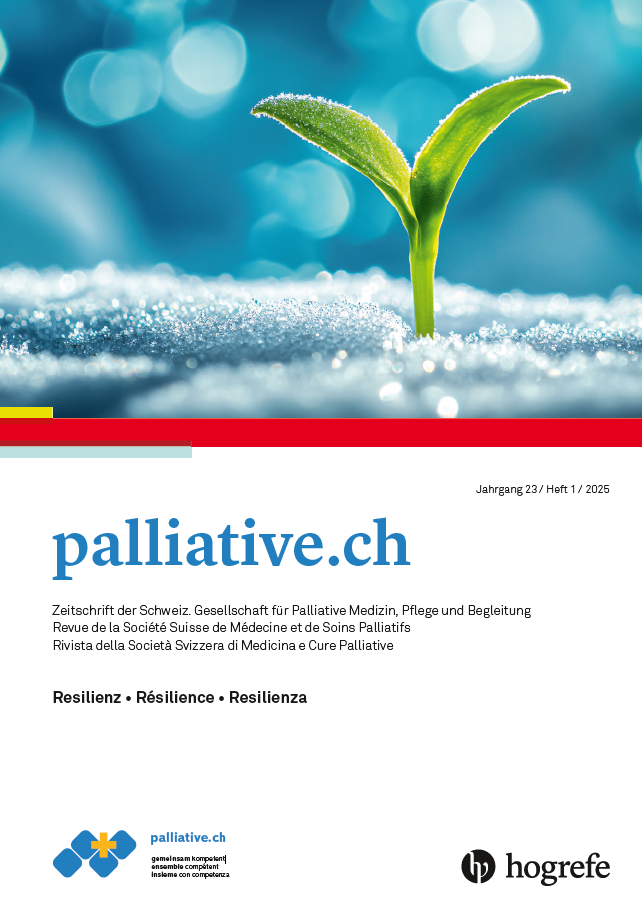
Marc Keller presents Assisted Lab’s ‘Living Archive’ in a feature for palliative.ch, the journal of the Swiss Society for Palliative Care. He highlights the significance of stories in debates around assisted dying and shows, through selected examples, how the archive raises awareness of the complexity and nuance inherent in the topic.
Assisted - The January Podcast Special is now available
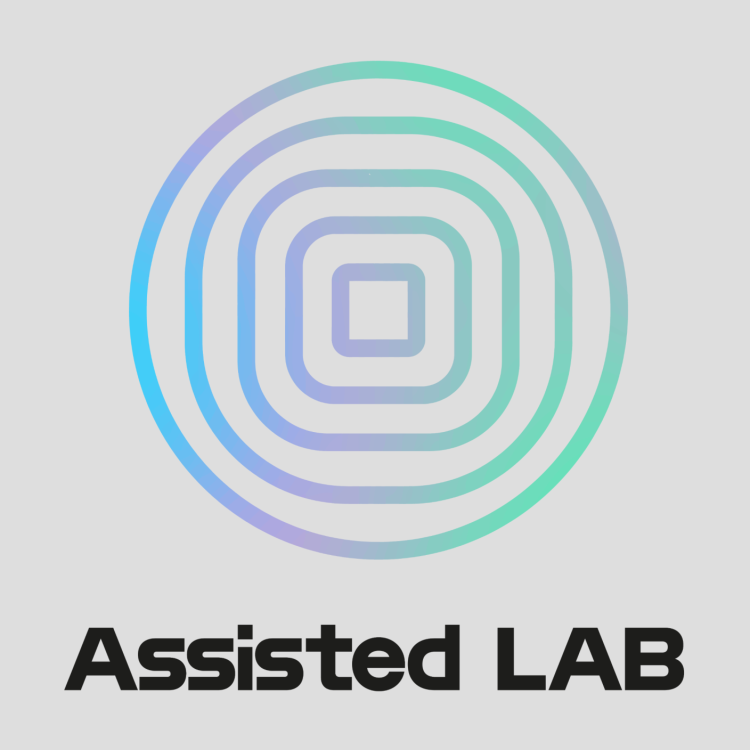
To welcome the new year and put last year’s assisted dying debates into context, Assisted Lab released a tripartite podcast special featuring influential and reflective voices. Our 3 guests - Wega Wetzel, Outi Hakola, and Marianne Brooker - are based in Germany, Finland, and the UK respectively, and have varying expertise as scholars, advocates, and family members. Available at our Podcasts tab!
Assisted Lab's Work Featured on Swiss Info
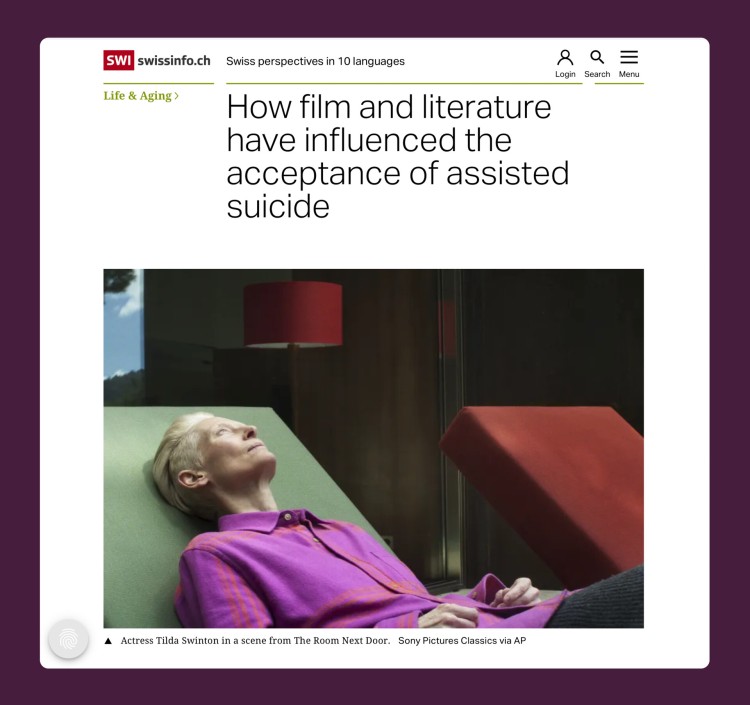
Swissinfo has published an article on the work of Assisted Lab available in English, German, French, Italian and Chinese.
Assisted Lab's Work Featured in eHospice
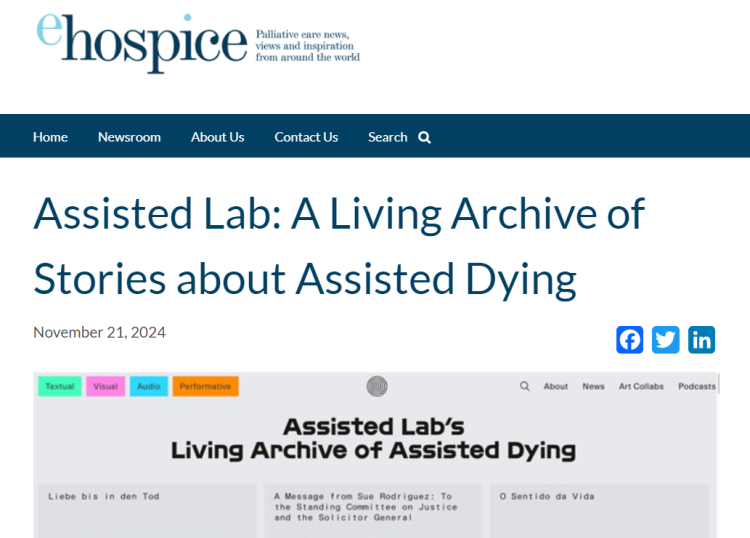
eHospice (News, Views & Inspiration on Palliative Care from around the World) has republished a blog post by Joe Wood, originally available on University of Glasgow’s End-of-Life Studies Blog
Research Seminar at Lisbon ERC Film and Death Project
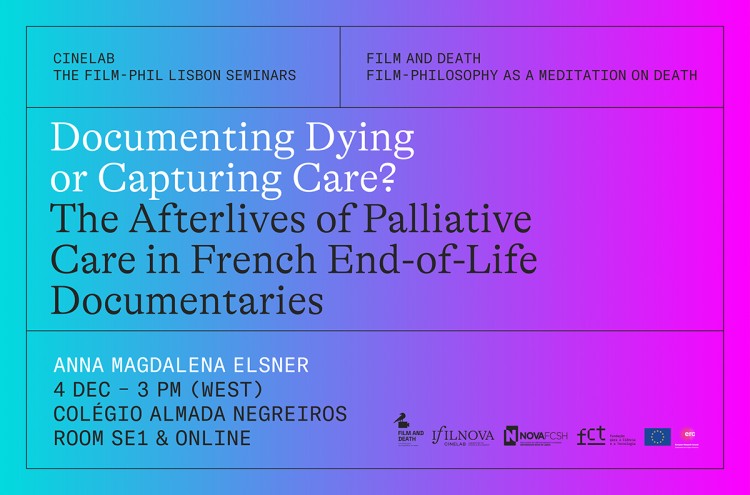
This talk centers on three French documentaries—Les yeux ouverts (Frédéric Chaudier, 2010), Une maison au bord du monde (Pascal Cesaro, 2018), and Les Equilibristes (Perrine Michel, 2020)—to examine how they engage with palliative care, a medical subspecialty that, since Cicely Saunders’s pioneering work in the 1970s, has become medicine’s primary approach to addressing death.
Wouter Schrover spoke to Assisted Lab about the cultural productions of assisted dying in the Netherlands
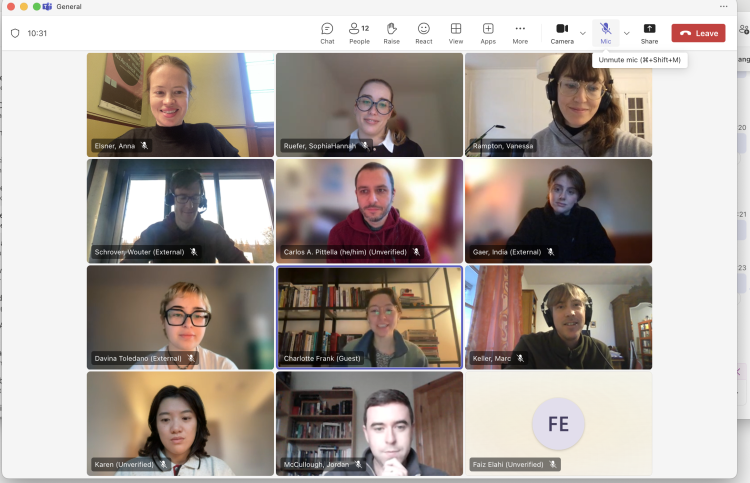
Wouter Schrover, a lecturer at Open Universiteit, is an expert on the cultural and artistic depictions of assisted dying in the Netherlands. Assisted Lab has benefited from his multiple entries for our archive, research collaborations, and a wonderful presentation at one of our research meetings in which he summed up knowledge gained during our association and tried to pass it on.
Assisted: The Podcast – Ep. 3 with lawyer Josefina Miró Quesada Gayoso
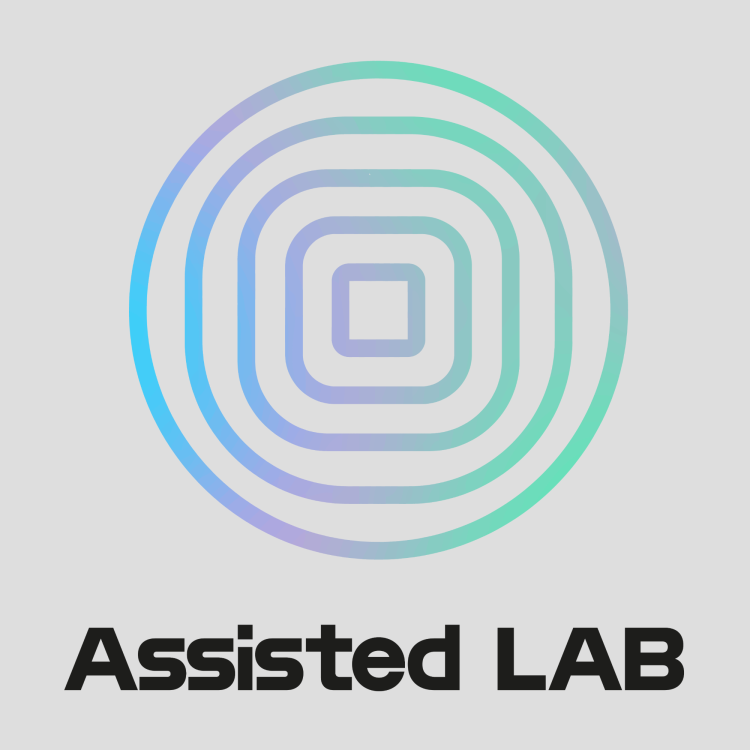
In this conversation with Jordan McCullough, Josefina Miró Quesada Gayoso discusses the legal contexts surrounding assisted dying in Latin American and shares her experience of being directly involved in the cases of Ana Estrada and María Benito. She also reflects on the role of stories in informing public opinion on assisted dying.
Sterbehilfe als Liebestod. Existenzielles Leiden in Literatur und Film der Gegenwart
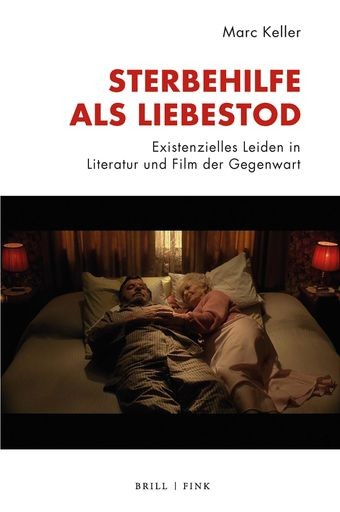
The study examines the role of the ‘Liebestod’ motif in contemporary German, Swiss and French narratives on assisted dying. It shows that most works are ambivalent: While they present existential suffering as a legitimate reason for assisted dying when older people don’t want to outlive each other, they also problematise certain aspects such as an overly idealised notion of self-determination.
Early Career Workshop
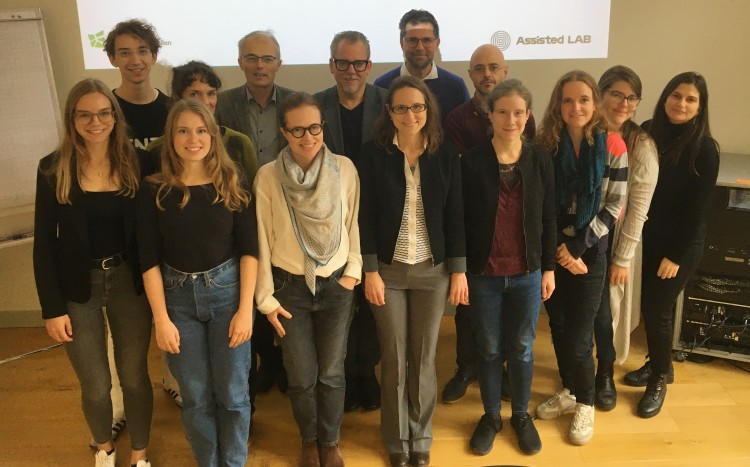
Early Career Workshop for literature graduate students at the University of Zurich with Francesca Dell’Oro and Anna Elsner. Participants explored how to present their research and trajectory, drawing on the experience of Assisted Lab as a model for collaboration and creativity.
Language Matters: The Semantics and Politics of 'Assisted Dying'

Our lab publication reflects on the ways in which the language used to describe ‘assisted dying’ is itself a political choice with concrete implications. In short, language matters when thinking about assisted dying.
Joe Wood spoke to Assisted Lab about Assisted Dying in New Zealand and Australia
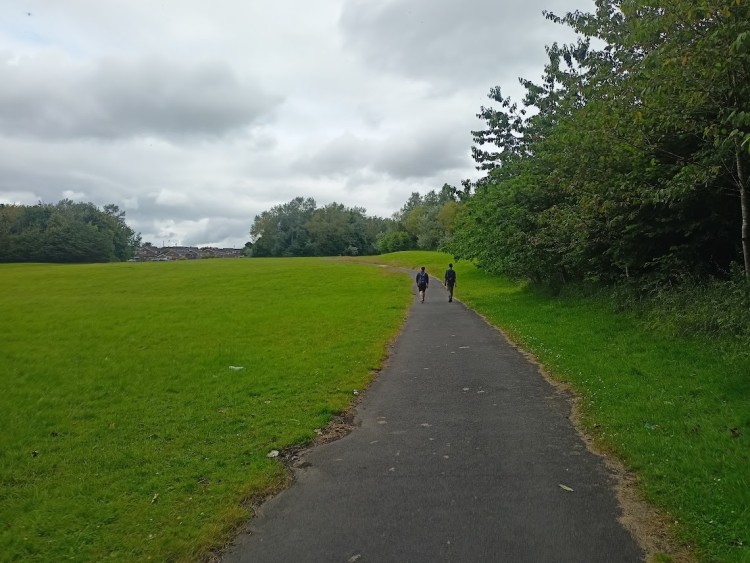
Joe Wood, a research associate of Assisted Lab in 2024, presented his research on stories of assisted dying in Australia and New Zealand, and how they have and have not influenced law-making. Joe is the author of multiple entries for our archive as well as reflective pieces on our practice, and the holder of many different kinds of knowledge. Our collaboration will be much missed.
End of Life Stories Workshop at McGill International Palliative Care Congress
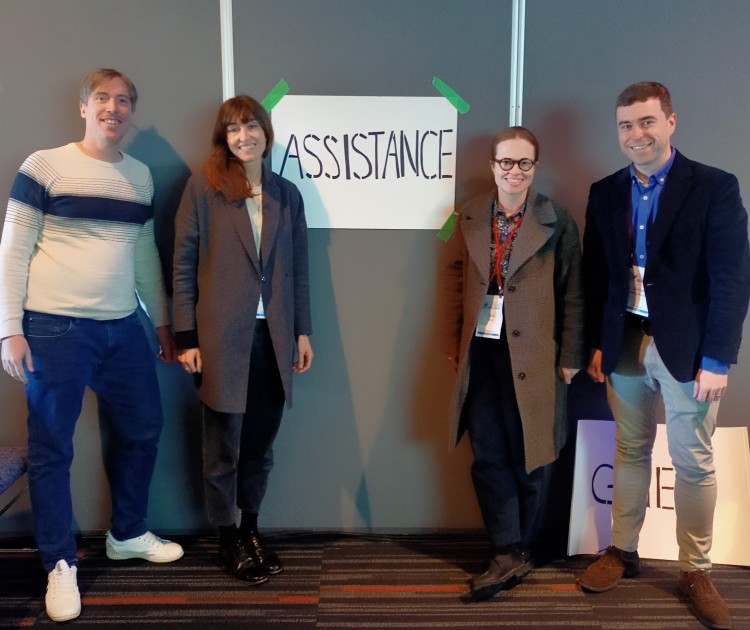
Using end-of-life stories in films and photographs, this workshop shed light on the relationship between palliative care and assisted dying. It began with short presentations using material from Switzerland, France, California, and Québec. The second part of the workshop was a discussion of how patient stories complicate the assisted dying-palliative care relationship in Canada and abroad.
Peggy Battin spoke to Assisted Lab about the Ethics of Suicide Archive
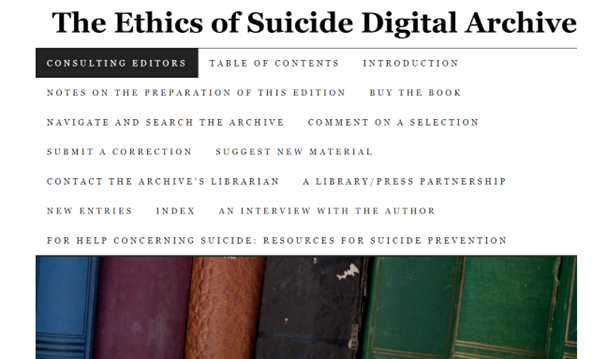
The Ethics of Suicide Digital Archive at University of Utah has long been an inspiration for Assisted Lab. We were therefore thrilled to welcome that archive’s editor and emeritus medical ethicist Peggy Battin to one of our research meetings. Peggy spoke to Assisted Lab about the Archive’s first, digital life and the process of giving it a second life by turning it into a book.
Paper at Association for the Study of Modern and Contemporary France Annual Conference
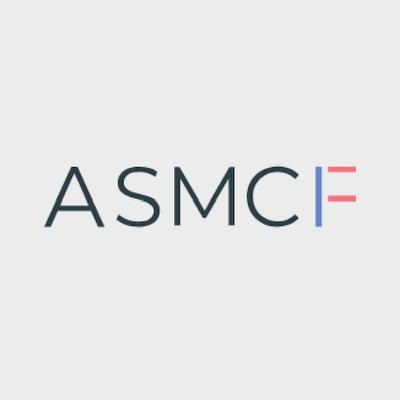
Jordan McCullough presented a paper on the role of stories in the assisted dying debates in France and Belgium as part of the annual conference of the Association for the Study of Modern and Contemporary France, which took place at the University of Southampton. Jordan’s paper focused on the story-cases of Vincent Humbert and Jean-Marie Lorand.
Keynote at French Studies & The Medical Humanities: Critical Intersectionalities Conference
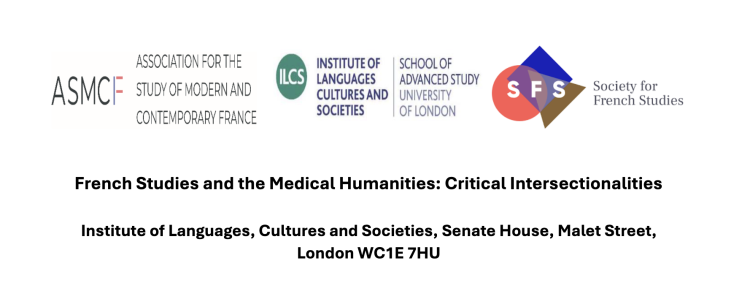
In her keynote at the ‘French Studies & the Medical Humanities: Critical Intersectionalities’ Conference, Anna Elsner focused on the role of the Anne Bert story in assisted dying law-making and examined the complexities, failures and highlights of interdisciplinary work that challenges the boundaries of French Studies & the Medical Humanities.
Theme Issue Literature and Medicine 'Cultures of Palliative Care'
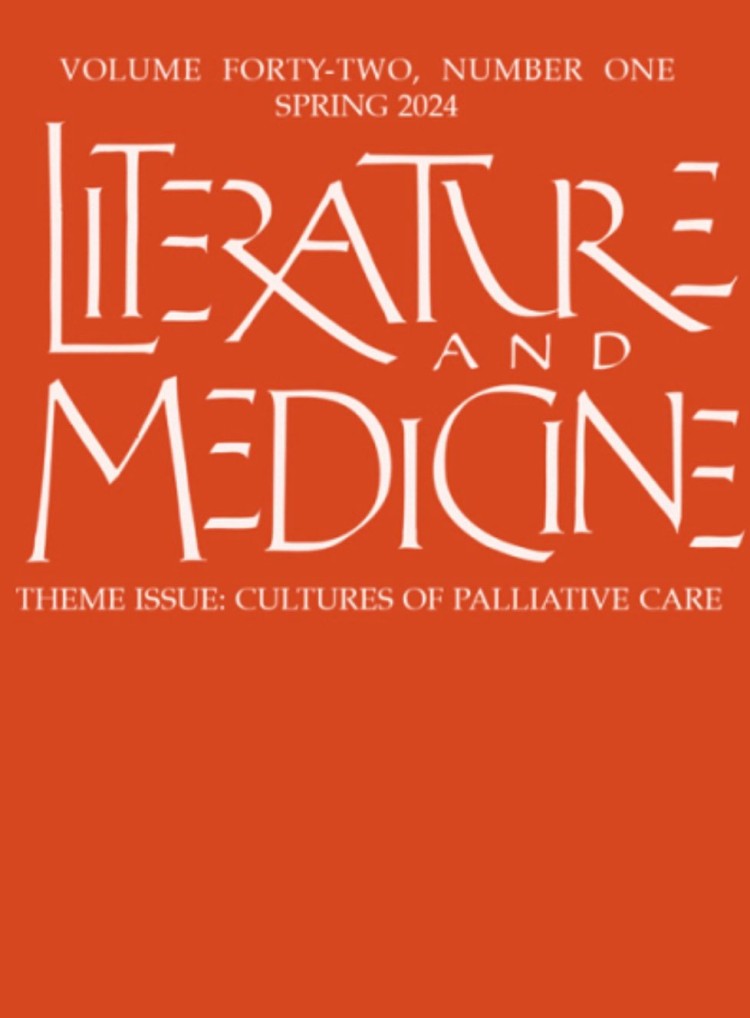
This 2024 theme issue of ‘Literature and Medicine’ published by Johns Hopkins University Press considers transnational, transcultural and multilingual perspectives on dying & illness narratives since the 1970s. It is guest-edited by Anna Elsner & Steven Wilson, featuring contributions by Joe Wood, Katja Herges, Marc Keller, Julia Pröll, Franziska Gygax, Jordan McCullough and Maria Vaccarella.
Niels de Nutte spoke to Assisted Lab about the history of assisted dying in Belgium
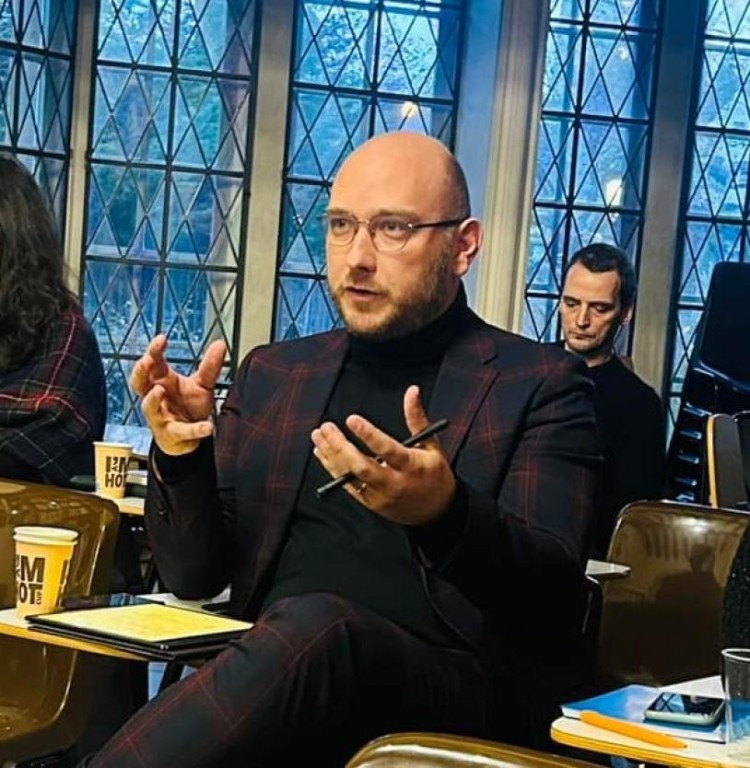
Intellectual historian at Vrije Universiteit Brussel Niels de Nutte presented his fascinating work on changing ideas about assisted dying in Belgium at an Assisted Lab research meeting. The discussion ranged from the ways in which legal reasoning draws on stories to the connections between living wills and end-of-life advocacy.
Love, Death, and – No Hospital!: Assisted dying, “Liebestod,” and Existential Suffering

In a special issue of the journal ‘Literature and Medicine’ entitled ‘Cultures of Palliative Care’, Marc Keller analysis three texts from contemporary German- and French-speaking literature that address the existential suffering of older people who are losing or have lost their ill partner and therefore wish to die.
Assisted: The Podcast – Ep. 2 with Swiss author Nicola Bardola
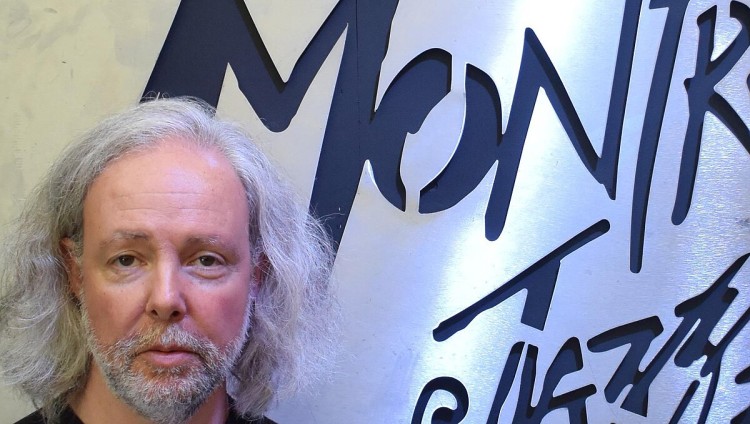
Swiss author Nicola Bardola sparked debate on assisted suicide with his 2005 novel “Schlemm”. In 2024, it was republished in an expanded form as “Der größtmögliche Beweis für Liebe”. In conversation with Marc Keller, Bardola discusses the novel, the evolution of assisted suicide in Germany and Switzerland, and the concept of a good death, exploring how literature and film contribute to this topic.
Papers at Society for French Studies Annual Conference

Marc Keller and Jordan McCullough presented papers on their Assisted Lab research at the 65th Annual Conference of the Society for French Studies, held at the University of Stirling. Marc presented on dual euthanasia and the question of existential suffering, while Jordan considered contemporary assisted dying memoirs as a new form of ars moriendi manual.
Assisted Lab Blog Post for Glasgow End of Life Studies Group
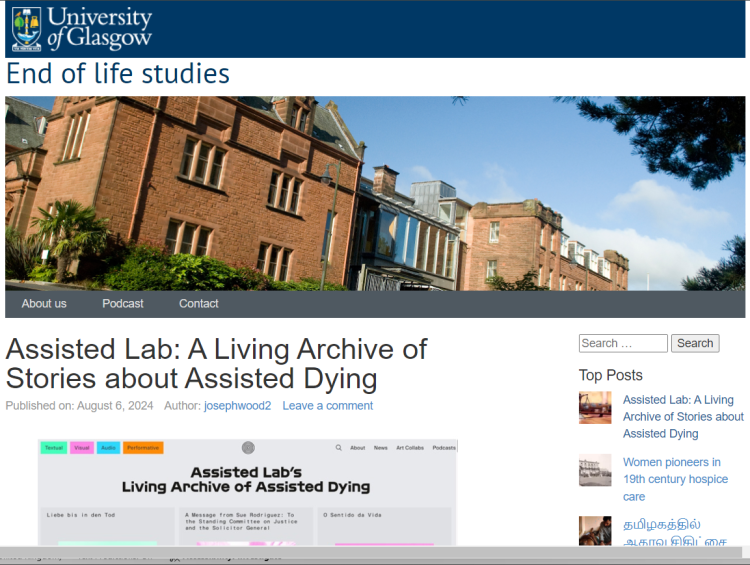
This blog post from Joe Wood, Visiting Fellow at Assisted Lab, explores some of the issues around our Living Archive of Assisted Dying, focusing on our approach and the importance of analysing the stories we tell about assisted dying as more countries consider legalisation.
Between medicine, humanities and the law: compiling a living archive of assisted dying
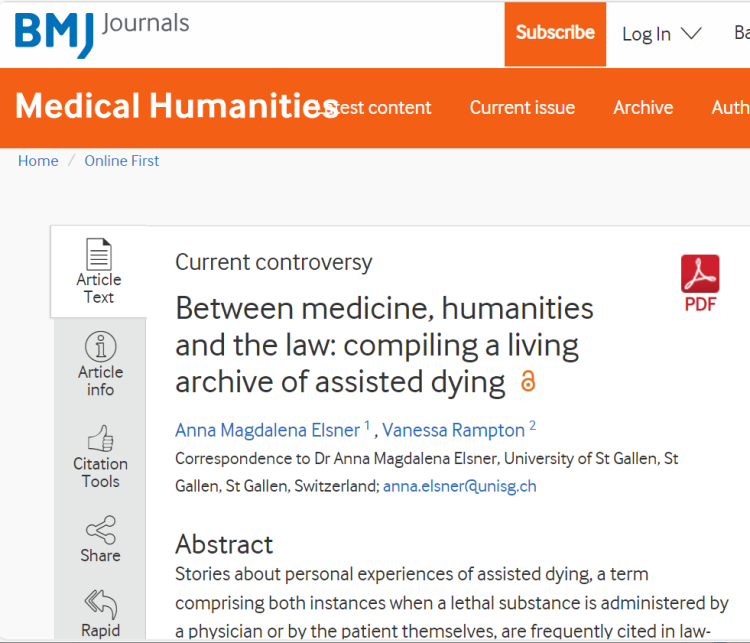
In this current controversy for BMJ Medical Humanities, we question how medical humanities researchers are to make sense of the role of these stories in law-making, and critically reflect on a digital archive that seeks to make these interconnections visible.
Assisted: The Podcast has launched!
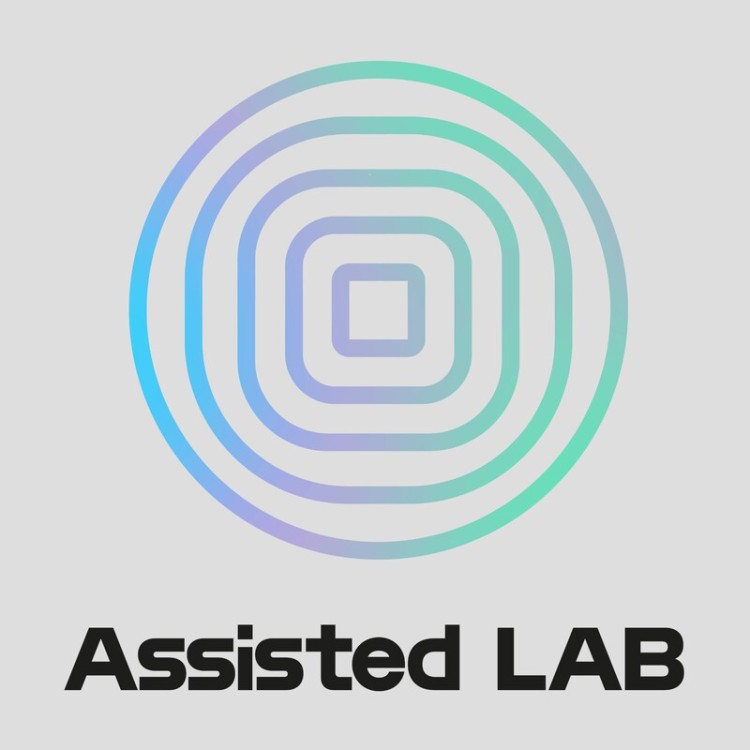
Philosopher Daniel Weinstock, who has first-hand knowledge of the evolution of the legal framework governing MAID in Canada, is our first guest. In conversation with Assisted Lab’s Vanessa Rampton, he shares his insights into Canada’s trajectory, the specificities of Québec’s place within it, and how norms and values change over time.
Anna Elsner Senior Fellow at the Collegium Helveticum
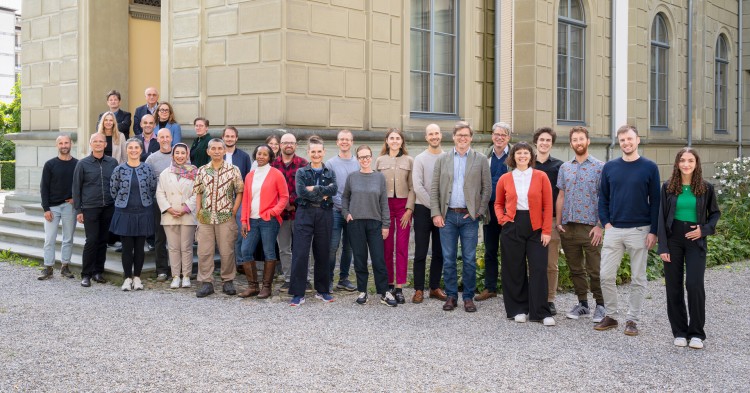
During her 2024–25 Senior Fellowship at the Collegium Helveticum (ETH, UZH, ZHdK), Anna will work on a book manuscript that forms part of her broader project on assisted dying in ethics, law, and aesthetics, as well as tracing its connections to the cultural history of palliative care in France. More info here: https://collegium.ethz.ch/fellows/fellow-year-2024-2025/anna-magdalena-elsner
Workshop on Disenfranchised Grief at the End of Life
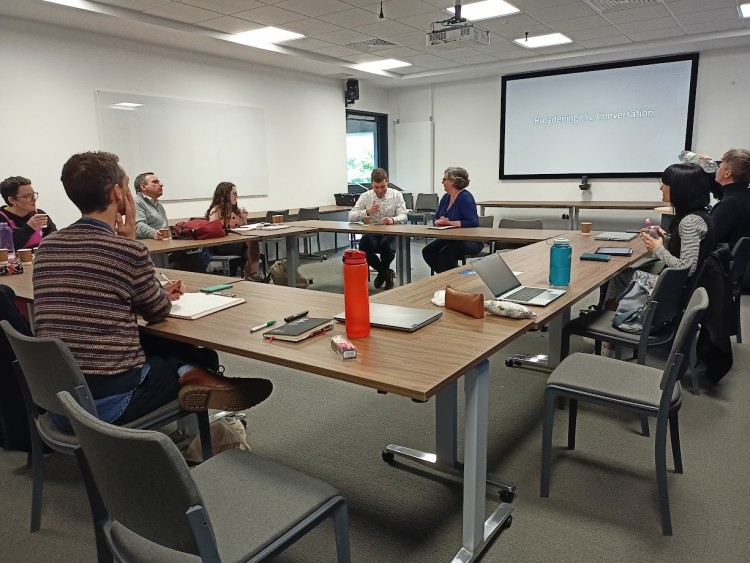
On Friday 28 June 2024, a group of international researchers, from a range of disciplines, came together in Newcastle University to discuss the question of disenfranchised grief at the end of life and work towards a edited collection on the topic. The workshop was organised by Jordan McCullough and featured input from scholars working on assisted dying, late-life care and perinatal loss.
Book on freedom and liberalism published in Russian translation
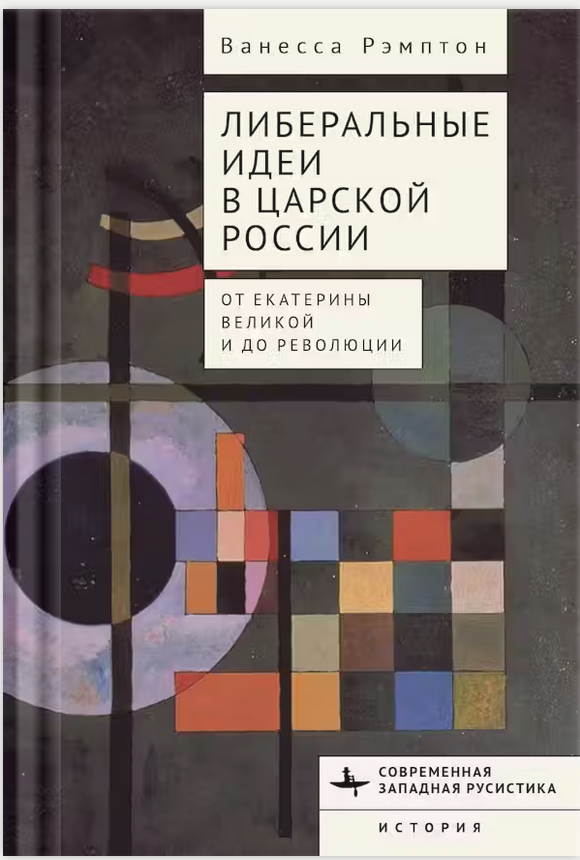
The valorization of individual choice is often at the heart of decisions for an assisted death. Yet broader cultural assumptions inform beliefs about autonomy, what kinds of life are worth living and why. Prior to Assisted Lab, Vanessa Rampton worked on these questions in eastern Europe; her book on liberalism and freedom in Russia is published in Russian translation by Academic Studies Press.
Law, Culture and the Humanities Conference Paper

Vanessa Rampton participated in the 26th Annual Law, Culture + the Humanities conference, and gave a paper on possible categorizations of the different ways in which assisted dying stories are cited in legal procedures.
Leuven Centre for Health Humanities Lecture 'Law Stories'
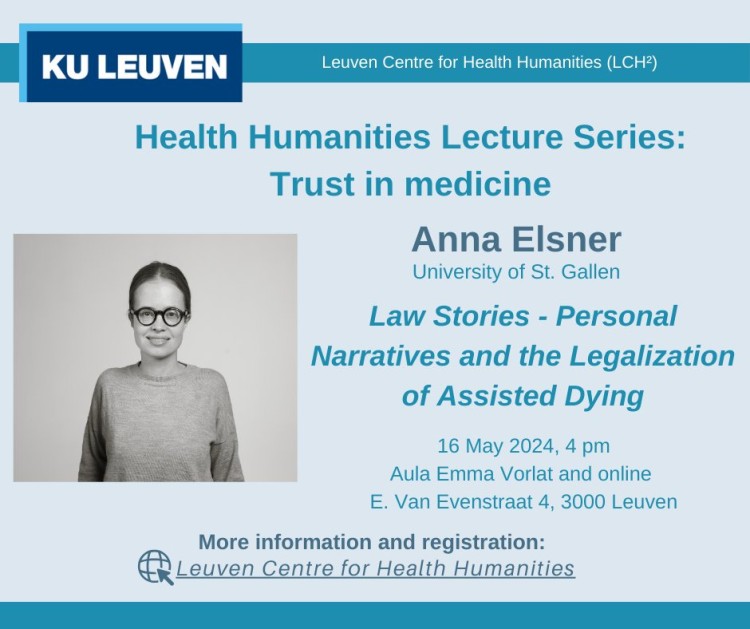
Anna Elsner contributed to the Leuven Centre for Health Humanities series on Trust in Medicine with a lecture entitled “Law Stories - Personal Narratives and the Legalization of Assisted Dying”.
Creating a Living Archive of Assisted Dying

Jordan McCullough and Marc Keller reflect on the ethical, legal, and linguistic dilemmas faced when constructing our “Living Archive of Assisted Dying.” Their considerations highlight Assisted Lab’s journey of creating a digital archive at the nexus of the multilingual, legal and digital medical humanities.
Outi Hakola spoke to Assisted Lab about Filming Death
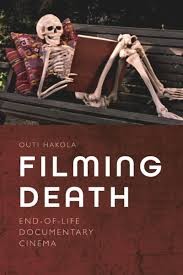
There are few researchers whose work is more relevant to Assisted Lab than cultural and media studies scholar Outi Hakola’s. We were therefore thrilled that Outi presented her new book Filming Death: End-of-Life Documentary Cinema at one of our research meetings. The discussion explored the multiple commonalities between our work, as well as new potential entries for our archive.
Letter to the Economist on Assisted Dying
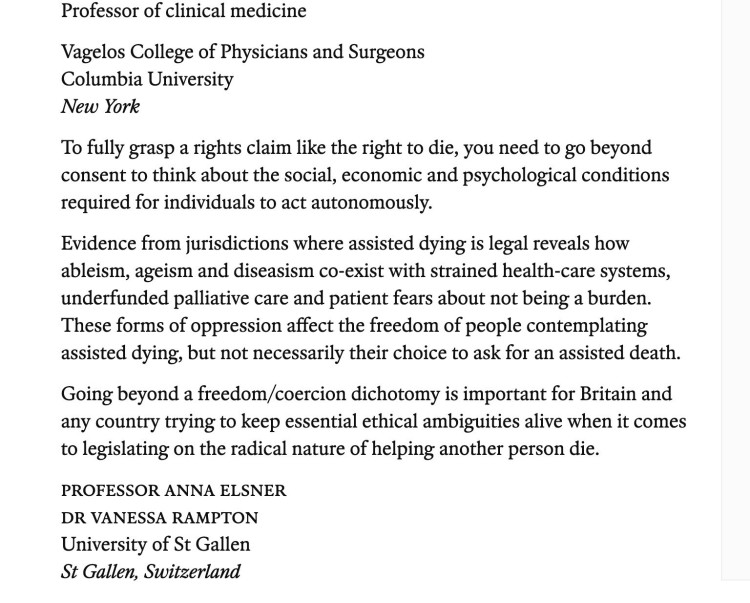
Assisted Lab’s letter by Anna Elsner and Vanessa Rampton is featured in The Economist as a response to its investigation ‘The Rights and Wrongs of Assisted Dying’ (13 April 2024), and the prospects for changing the law in Britain.
Cultures of Disenfranchised Grief: An Online Work-in-Progress Series
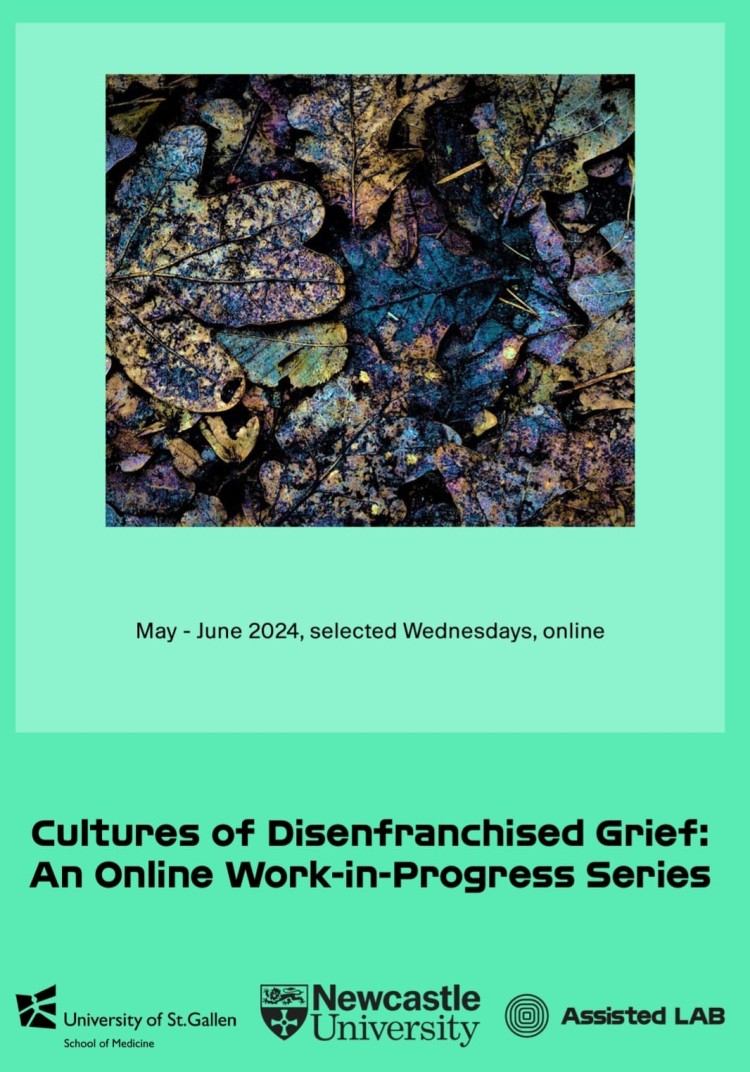
An online series bringing together international scholars in the Arts, Humanities and Social Sciences to discuss disenfranchised grief in various late- and end-of-life contexts.
Literature and Medicine
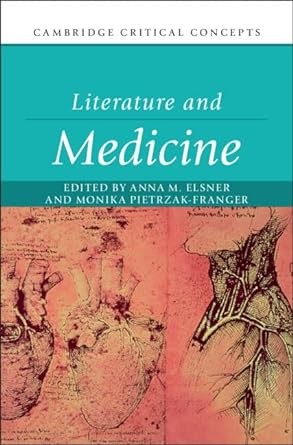
Volume on Literature and Medicine edited by Anna Elsner and Monika Pietrzak-Franger in Cambridge University Press’s Critical Concept Series published.
Anna Elsner speaks at Gesundheitsforum St. Gallen about death and dying in literature
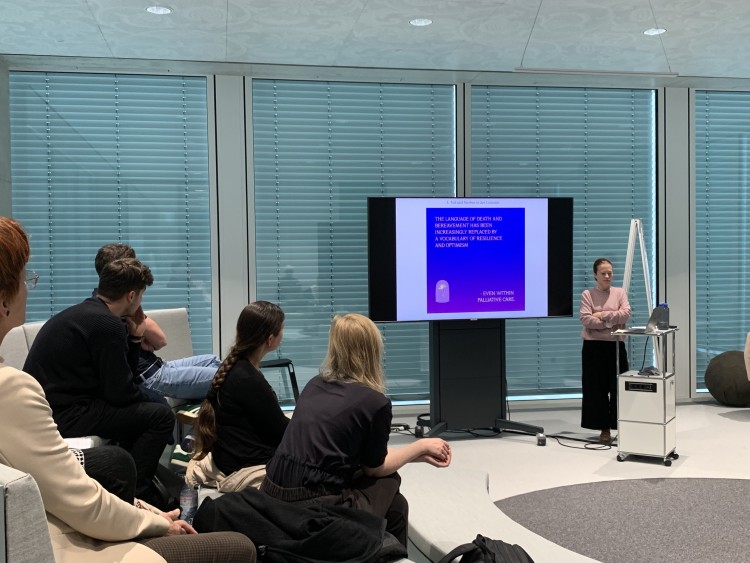
At Gesundheitsforum St. Gallen - a public program focused on questions of health and medicine organized by University of St. Gallen’s School of Medicine - Anna Elsner gave an overview of how experiences of death and dying are mediated in twentieth and twenty-first century literature.
De nuances van de liefdesdood

Following the duo-euthanasia of former Dutch Prime Minister Dries van Agt and his wife Eugenie, current Prime Minister Mark Rutte romantically compared them to a literary couple from the 17th century. Wouter Schrover and Marc Keller discuss how contemporary literature and film reveal the ambivalences of joint suicides, suggesting that a simplistic, romanticising understanding is not appropriate.
Trauer, Depression oder Liebestod? Literarische und filmische Darstellungen von Verlust und…
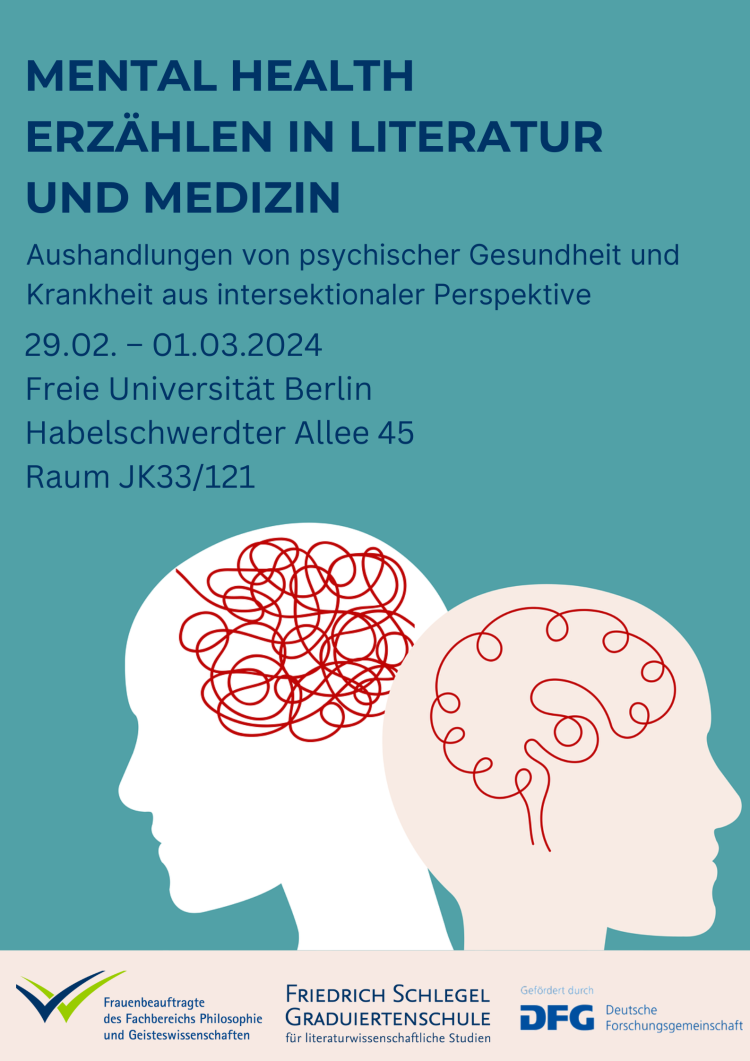
At a medical humanities conference at FU Berlin entitled ‘Mental Health erzählen in Literatur und Medizin. Aushandlungen von psychischer Gesundheit und Krankheit aus intersektionaler Perspektive’, Marc Keller gives a paper on the question of what role grief, depression and existential suffering play in the suicide of older people who lose their spouse.
Zur Darstellung der Sterbehilfe-Diskurse in Ferdinand von Schirachs 'Gott' (2020)
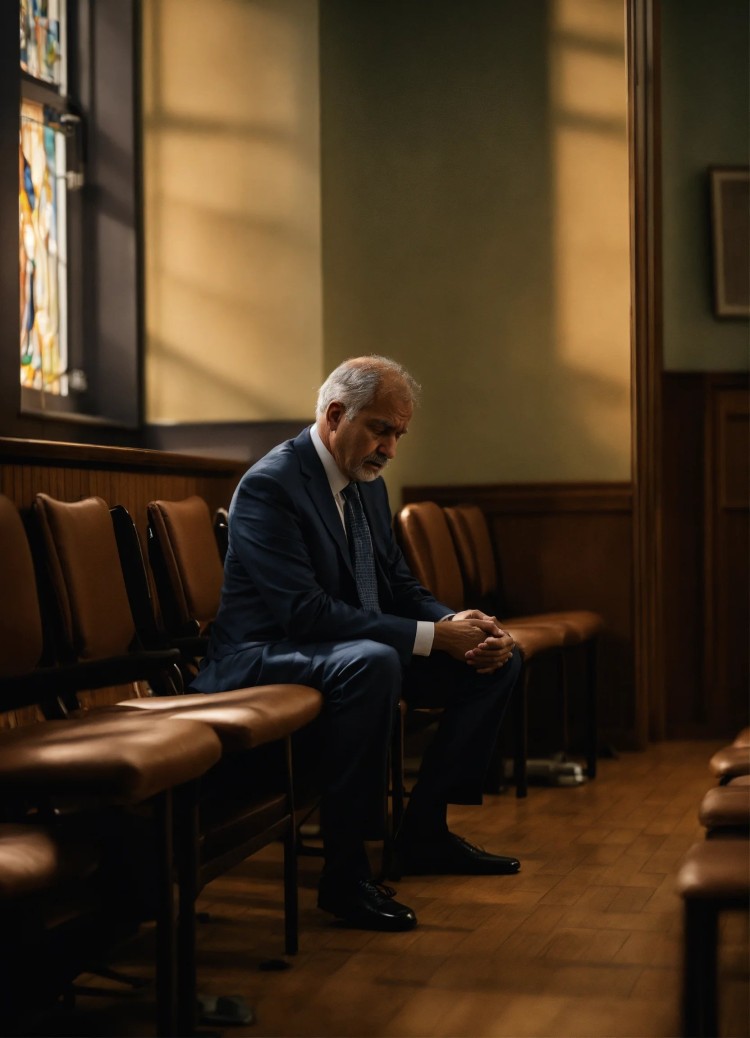
The edited volume ‘Juristendichtung. Ferdinand von Schirachs Werk zwischen Literatur und Recht’ contains various studies on the work of the German writer Ferdinand von Schirach. Marc Keller has contributed an article in which he examines the portrayal of assisted suicide debates in the theatre play and film ‘Gott’.
“Ich möchte, dass Du mir hilfst, Schluss zu machen.” Buchbesprechung zu Emmanuèle Bernheim: ‘Alles…
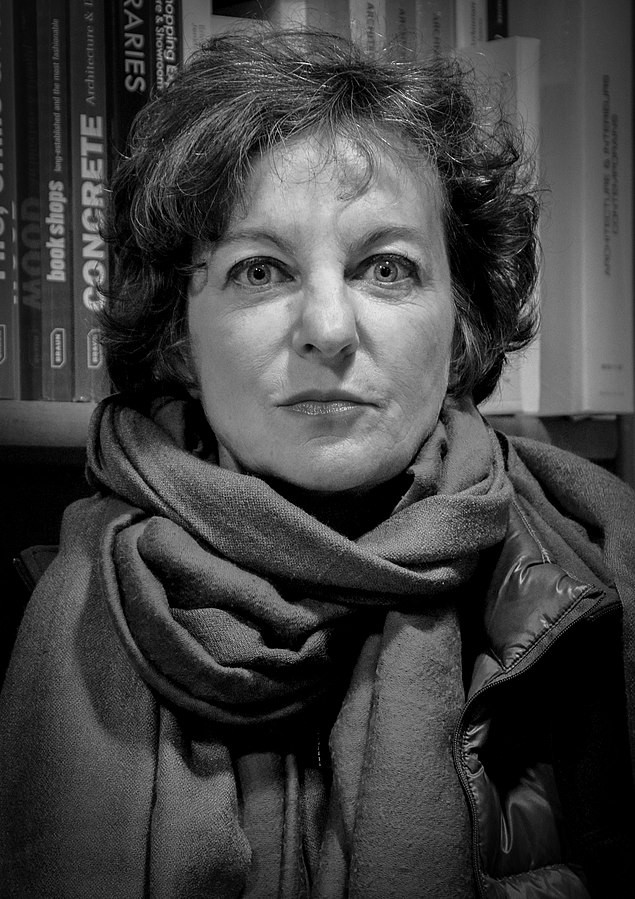
Marc Keller and Anna Elsner have contributed a book review of Emmanuèle Bernheim’s ‘Tout s’est bien passé’ to the edited volume ‘Ethik des assistierten Suizids: Autonomien, Vulnerabilitäten, Ambivalenzen’ that looks at the ethical, legal and social challenges of assisted suicide in the three German-speaking countries of Germany, Switzerland and Austria.
Podcast on medical technology and power
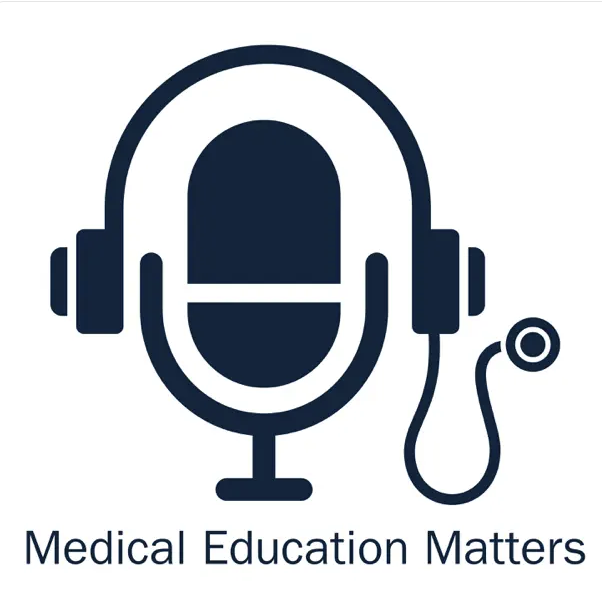
Medical technologies are not just tools in the medical encounter. Rather, they shape patient expectations, ideas about health and a good life. In this podcast for University of Wisconsin’s podcast series Medical Education Matters, Vanessa Rampton discusses technologies, privilege and power in the age of artificial intelligence.
The Assisted Dying Debate Is Really About How We Treat the Living

A recent push to legalize assisted dying in France obscures more fundamental problems that plague end-of-life care.
Rencontres autour de l’art du soin: Journées d’études Assisted Lab-Fondation Camargo-La Maison de Gardanne

Cet évènement, qui réunit Assisted Lab, des praticiens des soins palliatifs de la Maison Gardanne, et divers artistes à la Fondation Camargo vise à réfléchir à ‘L’Art du Soin’. Autrement dit, comment l’assistance, les soins, et l’art sont-ils conçus dans les processus différents de l’assistance médicale à mourir et des soins palliatifs.
Marie-Heim-Vögtlin Preisverleihung 2022 in St. Gallen mit Gewinnerin Anna Elsner
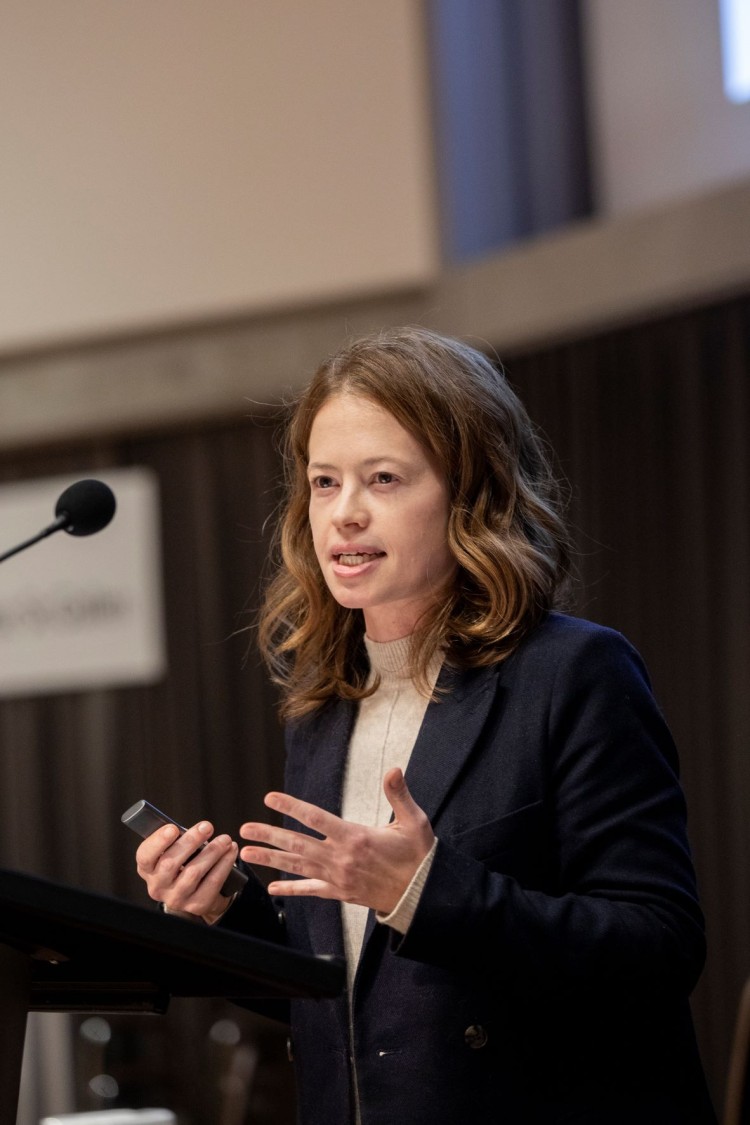
Preisverleihung des Marie Heim-Vögtlin-Preises 2022 in St. Gallen - mit Gewinnerin Anna Elsner, Ben Jann, Matthias Egger und Verena E. Müller, die Biografin von Marie Heim-Vögtlin.
Anna Elsner on the French Citizens’ Council on End-of-Life Care, France 24

Interview with Anna Elsner as a French citizens’ council of 150 members of the public will meet Friday to begin discussions on end-of-life care, including whether assisted suicide should be legalised. As French laws have evolved over the last two decades, calls have increased to allow medically assisted deaths for terminally ill patients.
Interview with Anna Elsner on how literature addresses and shapes the role of dying in society.
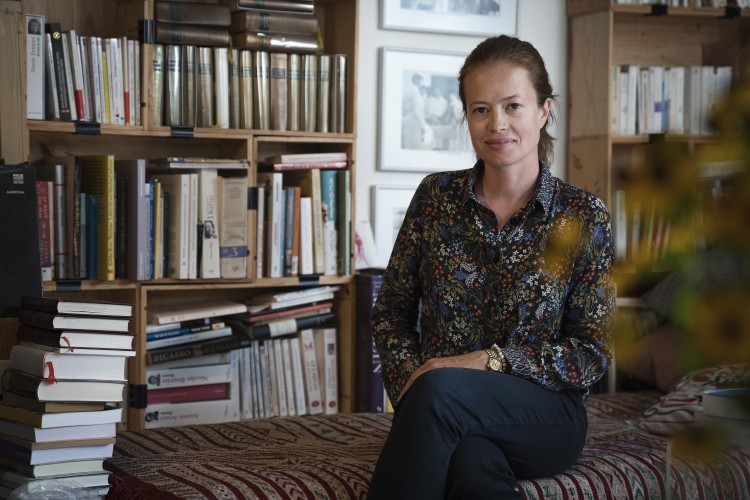
Anna Elsner studies how literature addresses and shapes the role of dying in society. Her innovative work has earned her the Swiss National Science Foundation’s Marie Heim-Vögtlin Prize for 2022.
Anna Elsner’s Project is Among Selected Research Funded by €619m from the EU’s new R&I programme,…
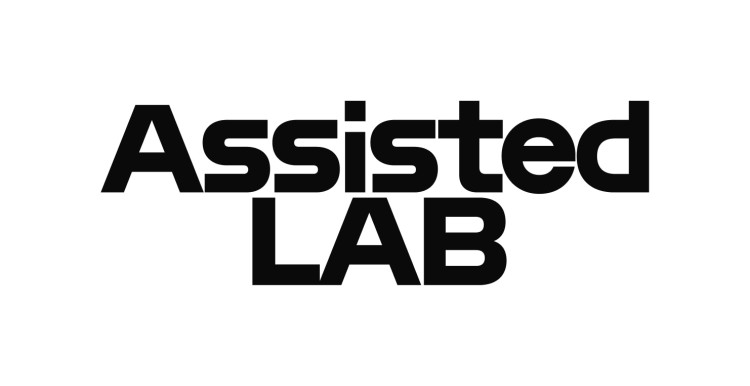
397 early-career researchers won European Research Council (ERC) Starting Grants, including Anna Elsner for the project Assisted Dying in European Writing and Visual Culture: Reciprocal Interactions between Law, Medicine and the Arts since 2000
